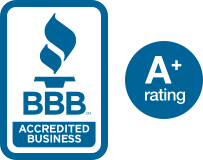The IRS is spending millions of dollars in resources to increase their capabilities in tracking down unreported crypto gains. If you’re facing a potential crypto tax issue, contact our team to provide you a free initial consultation.
a trusted name in tax relief
Let us represent you in front of the IRS and solve your tax problems. We have licensed professionals ready to represent you; we offer a money back guarantee**, and provide a secure and trusted platform for you. Contact us today to get an immediate solution for your tax debt problems.

Licensed Professionals
Our Certified Public Accountants licensed by a State Board of Public Accountancy in addition to attorneys or enrolled agents licensed by the U.S. Treasury can represent you before the IRS. Our tax resolutions specialists assigned to your case are licensed professionals.

Money Back Guarantee**
Detaxify will refund monies paid under the Detaxify Client Agreement within the first 14 calendar days without any penalty or obligation. Have peace of mind that we stand behind our service and your satisfaction is guaranteed.

A+ Accreditation / Secure & Trusted
Detaxify is accredited with an A+ from the Better Business Bureau. In addition, we provide a safe and secure site which you can trust. Our website is encrypted in addition to our fully-secure client portal. We take your privacy seriously. We do not sell or share your information with third parties.
Common Cryptocurrency Tax Issues
Taxpayers face two major and common issues when it comes to reporting taxes of cryptocurrencies.
1. Incorrectly reporting gains/losses
It is important to keep good track of all trades in order to properly calculate cost basis. Without knowing what the cost is for each transaction, the IRS will assume all your sales have a zero cost basis. This can result in you owing hundreds of thousands or even millions when you could actually have a loss. We have reduced massive tax liabilities for Taxpayers just on the fact alone that they calculated their gains incorrectly.
2. Price Fluctuations
We have seen traders who had a profit/gain of over a million in 2021 only to have a massive decline in their assets in 2022. Unfortunately, the IRS does not allow you to carry-back losses. Even if you owe a large tax liability in one year, it cannot be subtracted out in the next year due to a loss. It is extremely important to weigh options you have to manage IRS collections given a large tax liability.
FAQ
The crypto tax rate depends on whether or not you have held your crypto assets for less than one year or longer than one year (short-term versus long-term gain). Short-term gains are taxed at your ordinary income tax rate which can vary from 10% upwards of 37%. Long-term capital gain tax rates can vary from 0% to 20%; it depends on your total gain amount and how long you have held the assets.
If you are buying and selling crypto at a profit – yes; you will likely have a taxable gain. Even swapping a crypto asset for another crypto asset counts as a taxable transaction for which gain/loss need to be calculated. However, simply buying crypto and holding it does not cause any taxable transaction in most cases.
Crypto is taxed as either ordinary income or as a capital gain if there are transactions which result in what is called a taxable transaction. A taxable transaction typically occurs when there is a sale or swap of crypto. The ordinary income tax rates are taxed according to your tax bracket whereas capital gains benefit from lower rates.
For simple situations, such as being a single W-2 employee, TurboTax can be fine to use and is more cost-effective than using a professional. However, trading crypto inherently is a complicated situation whereas incorrect reporting can lead to IRS audits in addition to significant penalties for misreporting. Additionally, incorrectly calculating crypto gains can lead to significant amounts of tax being paid which should not have been paid in the first place. The money saved from using software with a complicated tax situation is often not significant comparing to the potential for significant penalties, costs of dealing with an IRS audit, or thousands of dollars paid in extra tax due to incorrect calculations.
If you do not sell your crypto, there is generally not a taxable transaction. However, many crypto holders and traders generally will swap their crypto holdings from one crypto asset to another. For example, swapping Bitcoin for Ethereum (essentially selling Bitcoin for Ethereum); or swapping DOGEcoin for Cardano or any other crypto asset.
Swapping coins counts as a transaction and the gain/loss is assessed at that time. It is extremely important to know your cost basis. Trading across multiple platforms can make tracking cost basis difficult; however, there are tools available to be able to track cost basis to make tax filing easier.
If you’re facing a potential crypto tax issue, contact our team to provide you a free initial consultation.

